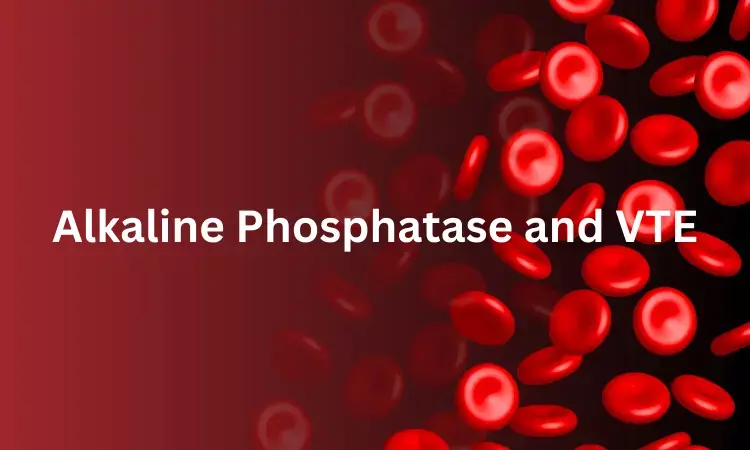- Home
- Medical news & Guidelines
- Anesthesiology
- Cardiology and CTVS
- Critical Care
- Dentistry
- Dermatology
- Diabetes and Endocrinology
- ENT
- Gastroenterology
- Medicine
- Nephrology
- Neurology
- Obstretics-Gynaecology
- Oncology
- Ophthalmology
- Orthopaedics
- Pediatrics-Neonatology
- Psychiatry
- Pulmonology
- Radiology
- Surgery
- Urology
- Laboratory Medicine
- Diet
- Nursing
- Paramedical
- Physiotherapy
- Health news
- Fact Check
- Bone Health Fact Check
- Brain Health Fact Check
- Cancer Related Fact Check
- Child Care Fact Check
- Dental and oral health fact check
- Diabetes and metabolic health fact check
- Diet and Nutrition Fact Check
- Eye and ENT Care Fact Check
- Fitness fact check
- Gut health fact check
- Heart health fact check
- Kidney health fact check
- Medical education fact check
- Men's health fact check
- Respiratory fact check
- Skin and hair care fact check
- Vaccine and Immunization fact check
- Women's health fact check
- AYUSH
- State News
- Andaman and Nicobar Islands
- Andhra Pradesh
- Arunachal Pradesh
- Assam
- Bihar
- Chandigarh
- Chattisgarh
- Dadra and Nagar Haveli
- Daman and Diu
- Delhi
- Goa
- Gujarat
- Haryana
- Himachal Pradesh
- Jammu & Kashmir
- Jharkhand
- Karnataka
- Kerala
- Ladakh
- Lakshadweep
- Madhya Pradesh
- Maharashtra
- Manipur
- Meghalaya
- Mizoram
- Nagaland
- Odisha
- Puducherry
- Punjab
- Rajasthan
- Sikkim
- Tamil Nadu
- Telangana
- Tripura
- Uttar Pradesh
- Uttrakhand
- West Bengal
- Medical Education
- Industry
Alkaline phosphatase in late pregnancy promising biomarker for prediction of post partum VTE

Alkaline phosphatase (ALP) is a glycoprotein found on the cell membrane. It mainly exists in liver, bone, placenta, kidney, small intestine, and other tissues of human. To support fetal growth and development, high ALP levels from placental production are normal variant of pregnancy.
A study published in eClinical Medicine: Lancet, was first of a kind to investigate the associations of ALP levels and Venous thromboembolism (VTE) postpartum, as the related mechanisms remain unclear, they aimed to investigate the associations between ALP levels and VTE postpartum, and to reveal the potential mechanisms
Researchers in a cohort study suggested that serum ALP in late pregnancy could be a promising biomarker for the prediction of VTE postpartum. Low serum ALP levels in late pregnancy were associated with increased risk of VTE postpartum, and the ALP-associated VTE risk may be partially mediated by hemoglobin.
The retrospective cohort study included pregnant women, total of 10,044 participants with serum ALP and whole blood hemoglobin measurements in late pregnancy (median, 37 (35, 39) weeks) were enrolled. The participants’ incidences of VTE (deep venous thrombosis and/or pulmonary embolism) postpartum were confirmed from the medical records. Pregnant women with new-onset VTE postpartum (within 6 weeks after delivery) were confirmed as VTE cases.
The key findings of the study are
• Approximately 0.8% of the pregnant women were diagnosed with VTE postpartum. In the unadjusted model, pregnant women with the lowest quintile of serum ALP levels (≤116 U/L) in late pregnancy had higher risk of VTE postpartum compared with those with the highest quintile (≥199 U/L) (OR, 2.83 [1.32, 6.05]).
• After adjusting for covariates of demographic, life style, birth outcomes, and other liver enzymes, pregnant women with the lowest quintile of serum ALP levels (≤116 U/L) in late pregnancy had increased risk of VTE postpartum compared with those with the highest quintile (≥199 U/L) (OR, 2.48 [1.14, 5.40]).
• A one standard deviation decrease of ln-transformed ALP levels were associated with elevated risk of VTE postpartum (OR, 1.29 [1.02, 1.62]).
• Significant negative associations of ALP with VTE were found in the unadjusted and adjusted models.
• Decreased serum ALP levels significantly (P < 0.05) related to decreased hemoglobin, which was significantly (P < 0.05) related to increased risk of VTE postpartum. Decreased hemoglobin significantly (P < 0.05) mediated 7.59% of ALP-associated VTE postpartum.
Researchers concluded that “This study suggested that low serum ALP levels in late pregnancy were associated with increased risk of VTE postpartum, and the ALP-associated VTE risk may be partially mediated by hemoglobin, suggesting that serum ALP in late pregnancy could be a promising biomarker for the prediction of VTE postpartum.”
Reference: Qian Li, Hongfei Wang, Huafang Wang, Jun Deng, Zhipeng Cheng, Wenyi Lin et al; Association between serum alkaline phosphatase levels in late pregnancy and the incidence of venous thromboembolism postpartum: a retrospective cohort study DOI:https://doi.org/10.1016/j.eclinm.2023.102088.
MSc. Neuroscience
Niveditha Subramani a MSc. Neuroscience (Faculty of Medicine) graduate from University of Madras, Chennai. Ambitious in Neuro research having worked in motor diseases and neuron apoptosis is interested in more of new upcoming research and their advancement in field of medicine. She has an engrossed skill towards writing and her roles at Medical dialogue include Sr. Content writer. Her news covers new discoveries and updates in field of medicine. She can be reached at editorial@medicaldialogues.in
Dr Kamal Kant Kohli-MBBS, DTCD- a chest specialist with more than 30 years of practice and a flair for writing clinical articles, Dr Kamal Kant Kohli joined Medical Dialogues as a Chief Editor of Medical News. Besides writing articles, as an editor, he proofreads and verifies all the medical content published on Medical Dialogues including those coming from journals, studies,medical conferences,guidelines etc. Email: drkohli@medicaldialogues.in. Contact no. 011-43720751


